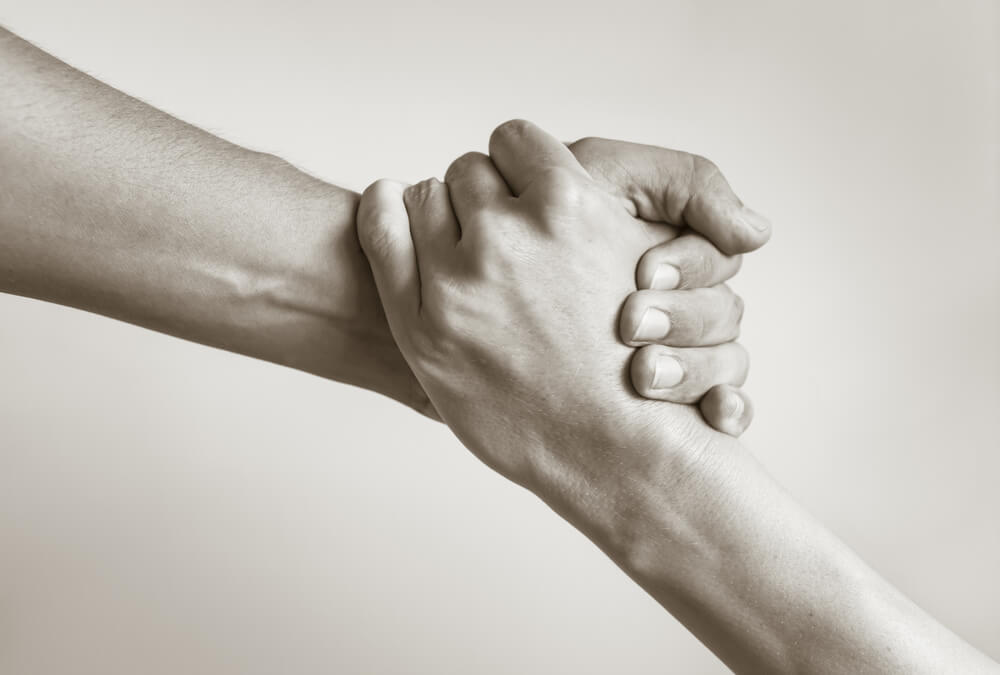Addiction, a disease affecting millions of individuals annually, requires appropriate treatment and support to fully recover. Support during the recovery process is essential for maintaining sobriety, addressing underlying issues, and leading a healthy lifestyle.
Support in addiction recovery is important for helping individuals stay sober and work on their issues. Relapse is more likely to occur without support; you may not have the tools to stay sober and continue progressing in recovery. Professional treatment and support during recovery can help the individual build the skills and knowledge needed to combat addiction and stay clean.
Support during recovery can also be beneficial in addressing underlying issues. Often, addiction is a result of underlying mental health issues, such as depression or anxiety, and professional support can help in identifying and addressing these issues. With the right support, individuals can work on their underlying issues and address the root cause of their addiction, leading to more long-lasting recovery and sobriety.
Finally, support in addiction recovery is important for helping individuals build a healthy lifestyle. A strong support system can provide individuals with the resources to engage in healthy activities, build meaningful relationships, and develop a sense of purpose. With support, individuals can build a lifestyle conducive to sobriety and long-term recovery.
Read on to learn more about the types of support you might need in the early stages of addiction treatment.
Types of Support Available in Recovery
Addiction can be a difficult and lonely journey, but it doesn’t have to be. Support from family and friends, medical professionals, clinicians, and your community during recovery can incredibly benefit your success.
Professional
Various treatments are available to help people struggling with addiction and mental health issues. Professional addiction and mental health treatment can give you the skills, techniques, and tools to manage your symptoms and achieve greater emotional and physical well-being.
Drug and alcohol rehab centers can help individuals identify and understand the underlying causes of their issues. This can give them greater insight into how their thoughts, feelings, and behaviors interact with their environment, enabling them to make more informed decisions and develop healthier coping strategies.
Professional addiction and mental health treatment can also provide individuals with the support and guidance they need to adhere to a treatment plan and stay on track with their recovery. Many treatment centers offer a wide range of services, from individual and group counseling to holistic therapies, to medication management.
Family and Friends
Addiction is often called a family disease, both because of how addiction can affect families and because addiction can have roots in family dysfunction. Addressing family problems in recovery can go a long way in reconnecting a person to their loved ones and revealing some underlying causes of addiction and mental health problems.
When a person starts their recovery journey, family and friends can provide much-needed emotional and practical support. This can come in the form of understanding, compassion, and reassurance. Having someone to talk to about their feelings and experiences can be invaluable to a person’s recovery journey. Additionally, family and friends can provide practical support, such as helping to manage finances, transportation, and other daily tasks that can be difficult to manage while in recovery.
Family and friends can also provide social support. Addiction often isolates a person from their loved ones, but with help, they can rebuild their relationships and regain a sense of connection. Family and friends’ support can also help a person find new activities and hobbies to explore during their recovery.
Community
Community support groups like Alcoholics Anonymous (AA) and Narcotics Anonymous (NA) allow individuals to share their experiences, struggles, and successes with others going through the same thing. This can be invaluable in providing understanding and a sense of camaraderie and creating a safe and supportive environment.
Support groups can also provide individuals with a greater sense of connection, which can be a powerful tool in recovery. Being part of a group can give individuals a sense of belonging and help motivate them to stay focused on their recovery goals.
Groups like AA and NA are free and available nationwide, making them among the most accessible options in long-term recovery and sobriety management.
Success Rate When You Have A Good Support System in Early Recovery
Having a good support system in early addiction recovery is one of the key components of successful recovery. A strong support system’s stability and reliability can help reduce the risk of relapse and provide a solid foundation for a person to continue their recovery journey.
A strong support system in early recovery can help a person stay focused on their recovery objectives. Staying motivated and committed to the recovery process can be difficult without a reliable and supportive network. Having people to lean on and talk to can help a person
to stay on track and offer them encouragement and guidance when needed.
Learn more about addiction recovery and how you can benefit from professional support in early recovery by contacting TruPath today. Call anytime!
Frequently Asked Questions (FAQs) about Support in Addiction Recovery
The journey to addiction recovery can be challenging, so getting the right support is essential. Here are common questions about addiction recovery and the support you might receive through your recovery process:
Will My Recovery Facility Help Me Connect With Family and Friends?
When you enter an addiction treatment program, your recovery facility will prioritize your needs. Sometimes that can mean therapy options like family therapy are beneficial. In other cases, you may need to spend time away from family and friends, at least during the early stages of your recovery. For instance, your treatment program will not help you connect or stay connected to family members and friends who still misuse or abuse drugs.
However, relationships with family and friends are essential to long-term sobriety. Even in individual therapy, you can learn how your substance use problems affect others and how you can improve your social skills and awareness in your relationships. Making and maintaining connections with loved ones you care about is very important in addiction recovery.
How Long Does Early Recovery Last?
Addiction recovery is a lifelong process. Substance use disorders are chronic diseases with no known cure, like diabetes. However, like diabetes, it can be treated so you can live a full life free from active addiction.
While recovery is a lifelong process, formal addiction treatment won’t last forever. Ideally, it will last as long as you need it. According to the National Institute on Drug Abuse (NIDA), treatment can be too short. The ideal minimum amount of time in addiction treatment is 90 days, which may start with high levels of care like medical detox and go through outpatient treatment.
However, since recovery is lifelong, even after formal addiction treatment ends, you should continue to pursue and safeguard your recovery through community involvement, strong relationships with family and friends, and 12-step groups like AA.
Sources
American Psychiatric Association. (2017, January). What Is Addiction? Retrieved https://www.psychiatry.org/patients-families/addiction/what-is-addiction
National Institute on Drug Abuse. (2018, January). Principles of Drug Addiction Treatment: A Research-based guide. Retrieved https://nida.nih.gov/sites/default/files/675-principles-of-drug-addiction-treatment-a-research-based-guide-third-edition.pdf
National Institute on Drug Abuse. (2018, July). Treatment and Recovery. Retrieved https://nida.nih.gov/publications/drugs-brains-behavior-science-addiction/treatment-recovery





